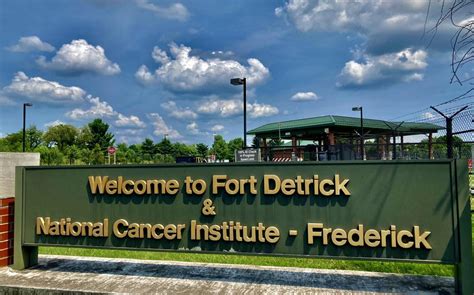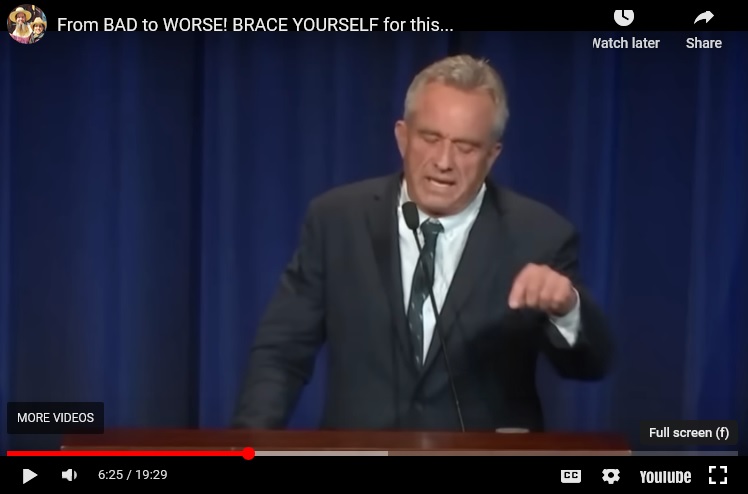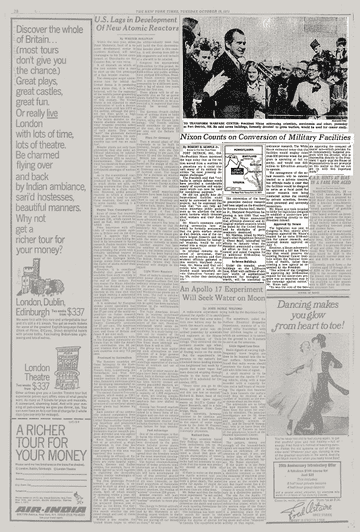by Fed Up Texas Chick, The Tenpenny Report:

The United States didn’t have a bioweapons program after World War II, but certain Deep State actors really, really wanted one. So what did they do? They recruited German and Japanese scientists from both countries which had quite an extensive bioweapons program. It was called Operation Paperclip.
Now, before you utter the words “conspiracy theory”, please know that RFK Jr. just mentioned Operation Paperclip in a recent speech. He certainly did. Because it’s real. You can watch the full clip here.
TRUTH LIVES on at https://sgtreport.tv/
Who recruited these evil scientists? The CIA of course, placing them as the heads of research labs, hospitals and pharmaceutical companies. RFK Jr. then proceeds to tell us about the experiments they did on the unwitting American people. They sprayed toxins everywhere, from airports to the Pentagon air conditioning system, just to see what happened. They poisoned the water at NIH. They filled light bulbs with bacteria and placed them in the New York City subway system. When the bulbs broke, which they inevitably did, harmful microbes filled the space. RFK Jr. says some of the microbes are still there today. He says that 200 aerial dosing tests were done in seaside cities as well as Midwestern cities.
We’ve all heard of German and Japanese ingenuity and efficiency, and by 1969, the US had a bioweapons program that RFK Jr. describes as “equivalent to a nuclear program.” The scientists even bragged at how cost effective their program was, saying that they could kill at a cost of 29 cents per person.
Nixon’s Role
In 1969, President Nixon famously went to Fort Detrick to shut the US bioweapons program down. Nixon was concerned that these scientists were getting out of hand. We already had nuclear weapons, so why did we have to also have biological weapons? These scientists were even publishing HOW they developed these weapons, and Nixon didn’t want the enemy to use them against Americans.
It’s very interesting to look back at how the media covered this. In a New York Times 1971 article, they report that Nixon wanted to convert military facilities from wartime to peacetime.
Nixon gave “informal” remarks to a crowd of servicemen, scientists and government officials gathered at Fort Detrick. Nixon said that in peacetime, the scientists could “henceforth devote themselves toward saving life, rather than destroying life.’ Nixon ordered a halt to the chemical and biological warfare research and the destruction of its stockpiles of germ weaponry. Research would then be devoted to cancer research. The Fort Detrick workers were in shock.
 But Americans were definitely on board. Biological weapons were an unknown mystery, but Nixon’s remarks reminded Americans of napalm and Agent Orange from the Vietnam War, and they wanted protection from such weapons of mass destruction. (Note that journalist Seymour Hersch published his famous and startling expose Chemical and Biological Warfare: America’s Secret Arsenal after it was determined that Fort Detrick scientists had developed (in 1967, as part of a secret program) a missile warhead capable of carrying biological weapons.
But Americans were definitely on board. Biological weapons were an unknown mystery, but Nixon’s remarks reminded Americans of napalm and Agent Orange from the Vietnam War, and they wanted protection from such weapons of mass destruction. (Note that journalist Seymour Hersch published his famous and startling expose Chemical and Biological Warfare: America’s Secret Arsenal after it was determined that Fort Detrick scientists had developed (in 1967, as part of a secret program) a missile warhead capable of carrying biological weapons.
The news quickly spread to Europe, and everyone knew that if the US took a great stand (which Nixon did in his first year in office), the world would ban these weapons. So Nixon put someone in charge of international relations. That person was Henry Kissinger, who presented overwhelming evidence to ban biological weapons. That’s a great story on the surface, but what else did Kissinger do behind the scenes?
Read More @ TheTenpennyReport.com



